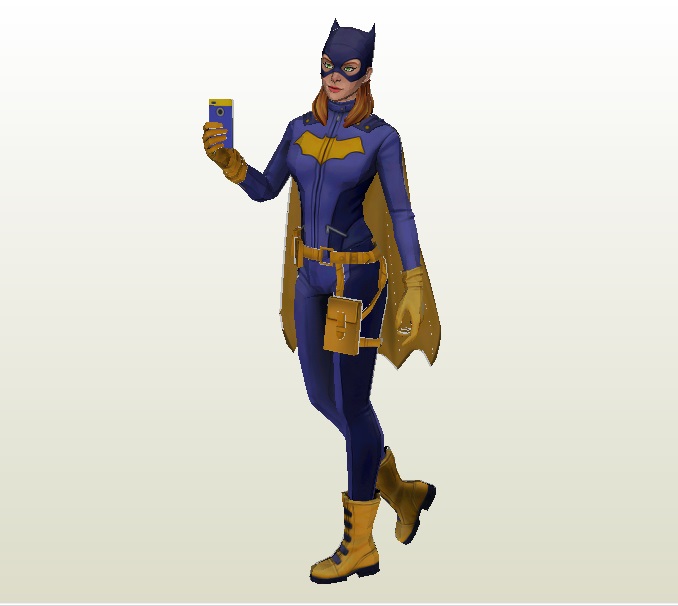- Thumbnail
-

- Resources
- Jacques Chenon
- Author
- Jacques Chenon
- Printed File Format
- PDO
- Page(s)
- 29
- Part(s)
- 320
- Instruction Format
- PDO
Batgirl papercraft
Dimensions: 600 x 195 x 244 mm
Dimensions: 600 x 195 x 244 mm
Batgirl is the name of several fictional superheroines appearing in American comic books published by DC Comics, depicted as female counterparts to the superhero Batman. Although the character Betty Kane was introduced into publication in 1961 by Bill Finger and Sheldon Moldoff as Bat-Girl, she was replaced by Barbara Gordon in 1967, who later came to be identified as the iconic Batgirl[citation needed]. The character debuted in Detective Comics #359 (January 1967) by writer Gardner Fox and artist Carmine Infantino, introduced as the daughter of police commissioner James Gordon.
Batgirl operates in Gotham City, allying herself with Batman and the original Robin, Dick Grayson, along with other masked vigilantes. The character appeared regularly in Detective Comics, Batman Family, and several other books produced by DC until 1988. That year, Barbara Gordon appeared in Barbara Kesel's Batgirl Special #1, in which she retires from crime-fighting. She subsequently appeared in Alan Moore's graphic novel Batman: The Killing Joke where, in her civilian identity, she is shot by the Joker and left paraplegic. Although she is reimagined as the computer expert and information broker Oracle by editor Kim Yale and writer John Ostrander the following year, her paralysis sparked debate about the portrayal of women in comics, particularly violence depicted toward female characters.
Batgirl operates in Gotham City, allying herself with Batman and the original Robin, Dick Grayson, along with other masked vigilantes. The character appeared regularly in Detective Comics, Batman Family, and several other books produced by DC until 1988. That year, Barbara Gordon appeared in Barbara Kesel's Batgirl Special #1, in which she retires from crime-fighting. She subsequently appeared in Alan Moore's graphic novel Batman: The Killing Joke where, in her civilian identity, she is shot by the Joker and left paraplegic. Although she is reimagined as the computer expert and information broker Oracle by editor Kim Yale and writer John Ostrander the following year, her paralysis sparked debate about the portrayal of women in comics, particularly violence depicted toward female characters.


Sponsored: Google Advertising
